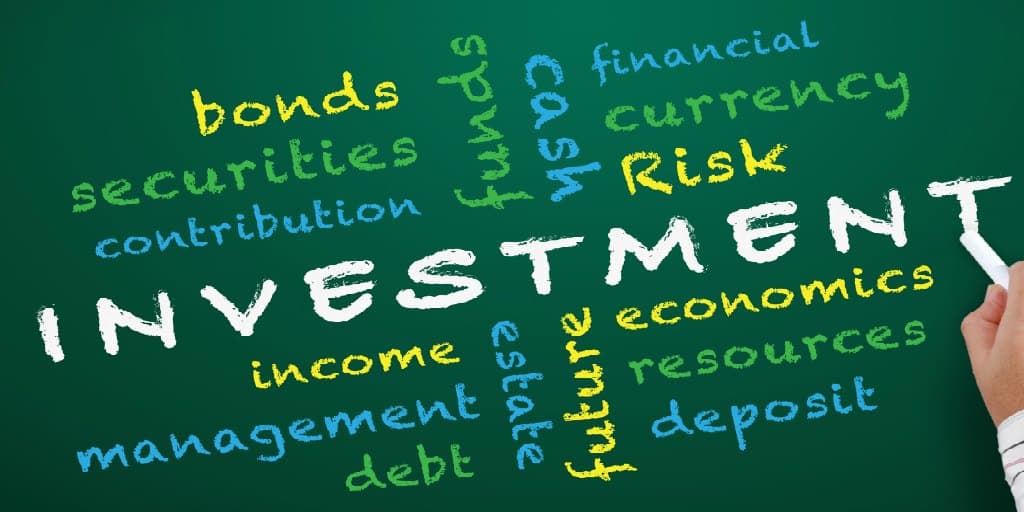Why Women Need to Invest and Not Just Save
(This page may contain affiliate links and we may earn fees from qualifying purchases at no additional cost to you. See our Disclosure for more info.)
You hear about people not saving enough for retirement on the news. Oodles of articles report on women living longer than men and the struggle many women have with money in their later years.
Family members, friends, and online communities mention the importance of women investing, and they encourage you to get started.
You know it's probably the smart thing to do. But honestly, you're just happy if you can save a little money each month.
How can you even think about investing when there are so many things involved in taking control of your finances?
It takes time and effort to:
- Break the paycheck to paycheck cycle
- Pay off unsecured debt
- Track expenses
- Create a budget
- Build an emergency fund
And once you see the balance growing in your high-interest savings account, you can finally sleep a little better at night.
Putting more energy towards learning about investing (and coming up with the money to do it) seems overwhelming right now. You can't retire for years or maybe even decades, anyway.
So is it that important for you to invest and not just save money?
Yes, it's really that important.
While you may not be ready to jump into investing, it's imperative you do so. Your future self will thank you for not putting it off any longer.
Investing doesn't require much work, money, or ongoing commitment, if you don't want it to. But the earlier you invest, the more time your money has to make more money.
Saving money is essential, but investing helps fight the effects of inflation, grows your net worth over the years, and prepares you for what lies ahead – college for the kids, helping your aging parents, and taking care of yourself in retirement.
What Prevents Women (& Others) From Investing?

You don't have to pick winning stocks or become a landlord to be an investor.
Depending on your situation and financial goals, there are many different ways to invest, with various “vehicles” to invest in.
But people – especially women – still shy away from investing, which can devastate building wealth over many years.
Many think they have plenty of time to invest later in life. But each year they wait takes away from the power of compound interest.
Another common reason people don't invest is they simply don't have any extra money.
With student loans, consumer debt, mortgages, and more – investing isn't seen as an option. Or a priority.
But many are leaving “money on the table” when they think they can't afford to invest in their 401(k) – if their employer offers a percentage match on the money they contribute.
Here are some additional reasons people may not invest:
1. Lacking confidence
You can talk to people you trust, meet with investment advisors, read article after article about investing, and still lack confidence in knowing what you're doing with your money.
Second-guessing yourself or seeking to find the “perfect” investment can cause you to opt out entirely as you wait to figure out how to invest better before you even attempt it.
2. Being risk-averse
You hear about the stock market dropping and people losing money, and the media regularly reports predictions for the next recession.
Even though you've seen evidence the market has always gone up over time, you can't imagine losing $1000 or even $100 at this point (or more as your money grows.)
Since women tend to be more risk-averse than men, they protect their emotions by playing safe.
Often too safe – skipping even relatively non-volatile investments like bonds and CDs due to their “money fears.”
3. Not understanding options
If you own a small business, lack traditional retirement account access through your employer, or stay home to take care of children or aging parents – you likely still have investment options.
These include accounts such as:
- SEP or Simple IRAs for entrepreneurs or small business owners
- Spousal IRAs for non-workforce spouses or those with low incomes
And don't forget that real estate investing and other alternative investments can also help build wealth.
Check out our review of Worthy Bonds, a product offering a 5% fixed rate of return.
4. Depending on others
Even if ready to start investing, some may wait for a loved one or trusted friend to set up the account and choose investments for them.
We know you don't want to (nor should you) invest in something you don't understand, but you owe it to yourself to learn enough to open, fund and select investing options.
Why Saving Without Investing Is Such a Problem

There's plenty in the news about women and money.
You see headlines on the:
- gender pay gap
- investing gap
- risks to women's retirements – including lower Social Security payments due to time out of the workforce to care for children or aging relatives
If women make less, invest less, and collect less, saving money alone won't save their futures.
Not only do many women have less money overall if they aren't investing it – inflation is eroding the purchasing power of the money they are saving.
While high-interest savings accounts help battle the effects of inflation, the interest isn't making you money.
Most years, you're just beating or barely keeping up with the inflation rate.
In other words, your money in savings accounts isn't earning money over time.
In fact, you're likely losing money in a savings account (especially traditional accounts) because of inflation.
So you need to make a different plan. A plan that includes investments.
We're not suggesting you quit saving money, as there's a reason for holding an emergency fund!
But it is vital to understand the roles of saving and investing and how they complement one another in supporting your financial health for a secure future.
While Saving is Great, Investing is Necessary
Savings accounts – preferably high-interest ones – can be used for short-term financial goals (think 3-4 years or less).
You trade risk for growth in these accounts, but your money is safe and accessible. Put money in savings accounts for holiday shopping, a different car, or a downpayment for a house.
Most people keep their emergency funds in a savings account too. But there are times when investing an emergency fund can be beneficial as well.
Think about your long-term financial goals (5+ years) when you consider investments.
You invest so your money makes more money over time. Investing builds your nest egg for retirement or helps pay for college for your children.
Whether you choose to invest in index funds in the stock market, an alternative investment such as Worthy Bonds, or an income-producing asset like a rental property is up to you.
While they are higher risk than savings accounts, they can also generate much more substantial returns over time.
Embrace Investing As A Way To Build Wealth
At this point, hopefully, you see why it's crucial for women to invest and not just save.
Investing helps you save yourself and your future. But it can still be challenging because it isn't just about the money.
It can involve a lot of emotions too.
For some, it helps to think about investing as prioritizing what you value.
If you want enough money to be independent in retirement, help your kids with college, or support the charitable missions of organizations important to you-you need your money to grow.
That's why you invest over the long term. And believe it or not, many women are excellent investors.
Recent studies show they often have better investing outcomes than men.

Women are more likely to:
- Question, research, and seek support from financial professionals rather than follow hot stock tips
- Choose index or target-date retirement funds
- Practice buy and hold while tuning out the noise of the up and down market
- Apply the brakes before taking a loan from their 401k – understanding the negative impact it can have on retirement savings
- Perform more due diligence as real estate investors, and be less likely to bid on foreclosures
When women shift their mindset to include crucial investing and saving, they can make significant strides in growing their wealth.
And they'll help other women with similar goals do the same because they know it's about supporting them, not competing with them.
Successful Women Investors also:
- Avoid debt as much as possible
- limit student loans by attending trade schools, community colleges or graduating in 3 years
- avoiding homes or cars that are “too big” and holding on to them longer
- Adopt a mindful spending and frugal lifestyle
- establish a budget, focusing on needs and things they love
- consider doing something like house hacking
- Monitor their credit score and build an emergency fund
- Boost their financial literacy whenever possible
- Focus on increasing income to pay down debt and increase savings and investments
- negotiate raises, change jobs, and take on side hustles
- Learn how to invest, manage emotions around it – and start investing
- use retirement calculators
- get comfortable with risk
- consider expenses and longevity
- understand being too risk-averse can sink wealth building
- Rebalance their portfolio based on goals (follow investing objectives)
- Use a financial advisor, planner, or coach if necessary (someone they trust, fee-only)
Saving and Investing Are Both Essential
Taking control of your finances and planning for your future is critical. So, by all means, save.
But women need to invest too.
No matter where you are on the journey, keep in mind the role of investing and how starting early and investing often – even with a small amount – can make a massive difference down the road.
While some investments require a minimum amount to start, many don't.
You can start with $5/week or $100/month, and increasing it when you can will help you learn, gain confidence, and make investing a habit.
If you've not yet enrolled in your company 401(k) or opened an IRA, consider setting a goal to do so within a week or two from today.
Contact your HR department and look to trusted brokerages, such as Vanguard, Fidelity, and Charles Schwab, to start contributing towards your retirement investments.
Tracking all your savings and investment accounts is easy too, with online tools through Personal Capital or spreadsheets with Tiller Money.
Read some financial books and blogs to continue educating yourself.
Just as we want women to see themselves as scientists, doctors, lawyers, politicians, and pilots – we want them to see themselves as investors too.
We're here to answer any questions we can or aid you in finding the resources you need, contact us or comment below. But since we are not professionals, consider seeking the advice of a fee-only financial advisor for your specific investment needs.
Next:

Written by Women Who Money Cofounders Vicki Cook and Amy Blacklock.
Amy and Vicki are the coauthors of Estate Planning 101, From Avoiding Probate and Assessing Assets to Establishing Directives and Understanding Taxes, Your Essential Primer to Estate Planning, from Adams Media.
